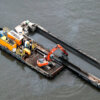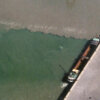Ecosystem Services is a concept for assigning a monetary value to both a commercial activity and the natural environs where the activity is occurring.
Ecosystems
An ecosystem is defined as humans, animals and plants found in a particular location. Within the ecosystem, in a fragile balance, they depend on each other for survival and sustain one another by their interactions. Ecosystems are dynamic and encompass diverse species. This biodiversity is crucial to a particular ecosystem and to the overall well-being of the environment. But ecosystems are subject to many pressures, both natural and human. These pressures can degrade the biodiversity of the planet and have long-term detrimental effects. Managing the ecosystem is one way of combatting the degradation of our planet’s biodiversity.
Origins of Ecosystem Services
The origin of the ES concept arose from the idea of environmental economists to put “a price on nature”, that is, to make a financial comparison between a proposed project and the natural environment by giving the ecosystem at a specific site an economic value. Such a valuation could help determine the balance between a particular ecosystem in relation to a project and to human well-being. What were the gains, what were the losses expressed in monetary terms. What were the “services” that the ecosystem provided to people.
In the case of dredging this means evaluating the ecosystem services that will be achieved and those that may be sacrificed by development of maritime infrastructure.
Dredging & ecosystem services
Healthy oceans, it has been said, are key to sustaining life on Earth. At the same time, they are a conduit for 90 percent of the world’s trade which connects both people and markets. What happens in the water of course has direct consequences for the maritime industry. Everything literally flows from one body of water to another. On the other hand, because of this “flow”, the maritime industry was identified as one of the factors that has significant impact on ecosystems.
Take as an example, the relation between ecosystem services and port construction. ES is a structured system to translate the value of ecosystem into a money-based commodity. By monetising the value of an ecosystem nearby the port, the stakeholders can evaluate if the increased advantages of the port – bigger ships, more commodities – are as valuable as the value of water recreation, such as swimming and boating as well as the fish and marine flora and fauna essential to the food chain.
A new approach to economics vs environment
The dredging industry has often encountered the economics versus environment debate. Confronting the challenges to preserve ecosystems and biodiversity, the major international dredging companies have made long-term investments in “green” technologies and designs for executing projects sustainably to technological improvements in monitoring and equipment. The ecosystem services concept, however, offers a new opportunity to advance dredging projects in a cost-efficient and ecologically sound way by assigning value to both the project and the ecosystem that may potentially be impacted.
Recent study
Recently a study at the University of Antwerp, Belgium, a group of scientists have elaborated a method to conduct an ecosystem service evaluation for an integrated assessment of specific maritime and dredging projects. The method consists of four basic steps:
- The different habitat types that are affected by the project are identified and changes in habitat and land use/land cover before and after a project are considered.
- All ES delivered by those habitat types are identified. Also, all relevant ES for the specific maritime project are identified.
- Each ecosystem service, as well as the underlying mechanisms driving the delivery are described.
- Lastly, the impact on all relevant ecosystem services are calculated in a quantitative and monetary way as much as possible.
Economic prosperity should be a shared value that reaches to all corners of the global community, at the same time taking into consideration all aspects of the shared global environment. The inner tension between economics and environment demands creative solutions that promote good policy choices. Ecosystems should not be sacrificed for economic advancements. Nor should dredging projects be hindered for superfluous reasons.
The concept of ES offers a better way to make informed decisions about projects and for evaluating the impact of commercial and industrial activities, for finding a way to fulfil society’s economic needs while preserving other values such as the planet’s future health. IADC supports this new avenue of research and evaluation of dredging projects and their contribution to economic and social well-being.







































